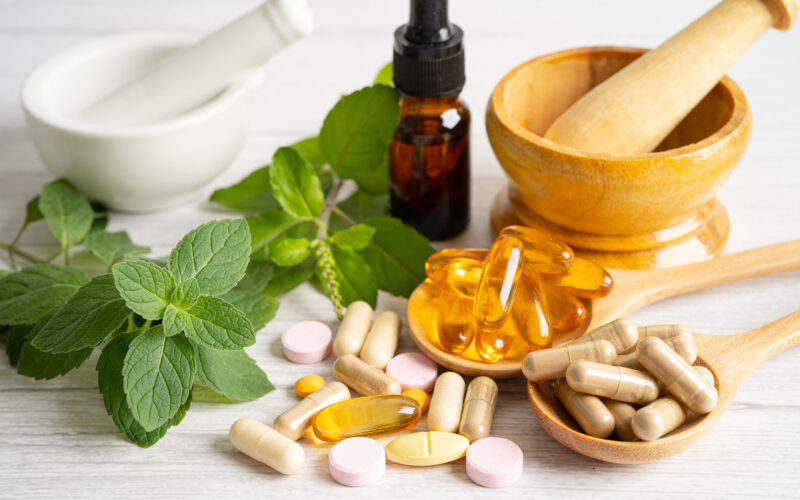Yes, it’s true that having good gut health can keep gastrointestinal symptoms at bay, but that’s not the only benefit. Maintaining a healthy and balanced digestive system can also impact the function of other body parts. For instance, it can play a role in protecting you from bacteria, external diseases, and other conditions.
While you can enhance the health of your gut by following a well-balanced diet, another way is to incorporate gut health supplements into your daily routine. Here are five essential supplements you can explore to keep your gut as healthy as can be.
1. Probiotics
The first on this list is probiotics. These are living organisms that come in the form of good bacteria and yeast that can aid in your body’s digestion. In addition, this type of supplement can treat many gastrointestinal problems, such as diarrhea and irritable bowel syndrome (IBS).
Although you can get probiotics in capsule or tablet forms, you can also get them from certain foods like malted milk, yogurt, sourdough bread, miso, and other fermented products. Examples of these include kombucha, pickles, kimchi, and some cheeses.
To enhance the results of probiotics in your system, you can add a component known as prebiotics. They are nourishing fibers that help with the growth of healthy bacteria in your system. Prebiotics work to support your immune system, build stronger bone health, and improve digestive functions. Some examples of prebiotic-rich foods include bananas, leeks, onions, garlic, and asparagus.
2. L-Glutamine
L-Glutamine is an essential amino acid that works mainly to remove excess ammonia in the body. Ammonia is a common waste product that can impact your immune system, brain function, and digestion. By removing this harmful compound from your system, you can improve your gut health as well as the other functions of your body.
L-Glutamine also has anti-inflammatory properties which can help prevent certain conditions like colorectal cancer, ulcerative colitis, and Crohn’s disease. These conditions are known as inflammatory bowel diseases that can impact your digestive functions and give rise to symptoms like abdominal pain, bloody stool, and diarrhea.
That said, L-Glutamine can help maintain healthy intestinal lining and gut condition by primarily supporting the stomach barrier function and promoting cell reproduction. In doing so, it can enable your gut cells (also known as enterocytes) to regenerate at a much faster pace. As a result, L-Glutamine can seal the junctions in your gut and restore the stomach lining to its optimal state to prevent certain conditions from developing.
3. B Vitamins
B vitamins are some of the most important and versatile gut health supplements you can have. Their main role is to enable your body to produce red blood cells and absorb the energy you get from the food you consume. As a water-soluble vitamin, this supplement has immediate effects on the body.
Here are some of the essential B vitamins you can include in your diet to regulate your digestive system.
B1
B1, otherwise known as thiamine, can transform the carbohydrates you consume into energy for your cells to help you power through your day and regulate your appetite.
B3
Niacin or B3 works to maintain digestive tract functions, such as the breakdown of fats, carbohydrates, and alcohol. Because of this, it can help keep conditions like diarrhea and vomiting at bay.
B6
B6, also known as pyridoxine, is responsible for absorbing and processing protein.
Biotin
Biotin or B7 plays an integral role in producing cholesterol and processing proteins, fatty acids, and carbohydrates. On top of this, it also promotes the right function for the nervous system and liver metabolism.
B12
B12, otherwise known as cobalamin, is essential for nerve function and DNA repairs. It impacts the way the body uses carbohydrates and folic acid. If you have a B12 deficiency, you may experience anemia, cramping. nausea, and diarrhea.
4. Ginger
For centuries, ginger has been used in traditional medicine to treat stomach aches and other inflammatory conditions. In more recent years, ginger has been used to relieve vomiting and nausea during pregnancy. This is because it contains specific properties that can modulate the gut’s microbiota composition.
Another benefit of adding ginger supplements to your diet is that it can reduce the inflammation in your intestinal villi by reducing oxidative stress and inflammation. Villi are the hair-like projections in your stomach that line your small intestine. They house blood vessels that help absorb nutrients for the rest of the body. That said, it’s essential to keep your villi healthy. One way to do so is by consuming ginger.
Depending on your preferences, you can find ginger in powder form as well as capsules or tablets. But if you prefer a fresher product, the cut root is also widely available. Although ginger is considered safe, it’s recommended to take it in small doses. One to two grams a day should suffice to keep your gut health in good condition.
5. Psyllium
Last but not least is psyllium. Often, you’ll see this ingredient in laxatives because it can help treat constipation. Psyllium has an extremely high fiber content, which makes it effective in absorbing water in your intestines and helping your stool come out more smoothly. If you ever experience any difficulty in releasing your bowels, taking gut health supplements with psyllium could be an effective solution.
Wrapping Up
These gut health supplements have positive effects on your digestion. From boosting gut bacteria to relieving gastrointestinal symptoms, these five essential compounds can ensure that your digestive system functions in the most optimal condition possible.
However, be sure to check with your doctor before taking any supplements. Consult with them regarding the appropriate dosage and frequency. Should you experience more severe conditions or are pregnant, you may need to take safer alternatives.

